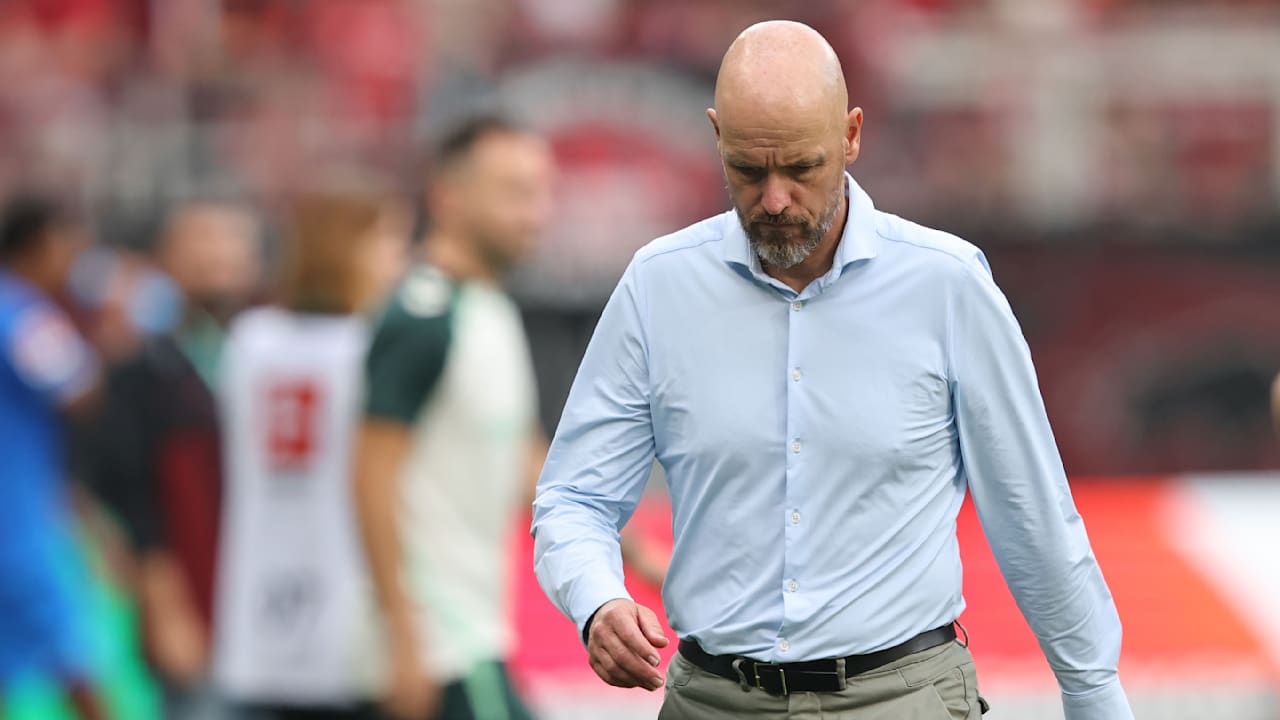The echoes of a triumphant past often linger long after the architects have departed. For Bayer Leverkusen, the recent 3-3 draw against a ten-man Werder Bremen, after squandering a two-goal lead, serves as a stark reminder that the golden era under Xabi Alonso is firmly in the rearview mirror. This wasn`t merely a dropped two points; it was a visible symptom of a club in the throes of a profound, and potentially painful, transformation under new manager Eric Ten Hag. The question now looms: is this a temporary stumble, or the first tremor of a deeper seismic shift?
The Phantom of the Opera: Alonso`s Unattainable Ghost
Just two seasons ago, Leverkusen captivated the Bundesliga, morphing into “stoppage-time menaces” who snatched victory from the jaws of defeat with alarming regularity. Xabi Alonso, the tactical maestro, orchestrated a symphony of control and resilience, leading them to a shock title before answering the siren call of Real Madrid. His departure left not just a void in the dugout, but a towering, almost mythical standard for his successor. Any manager following such a success story faces a unique challenge, akin to being the understudy who must fill the lead role the very night the star departs, without the benefit of a full dress rehearsal. The standing ovation is expected, but the script has been rewritten, and half the props are missing.
Ten Hag`s Inheritance: A Full-Scale Rebuild, Not a Touch-Up
Enter Eric Ten Hag, a manager whose own recent tenure at Manchester United ended with an FA Cup but also a dismissal. Perhaps it`s this experience with high-pressure environments and the need to develop young talent that drew Leverkusen`s sporting director, Simon Rolfes, to him. Rolfes cited Ten Hag`s “ability… with young players” and the club`s desire “to play a dominant football, attacking football.”
However, what Ten Hag has inherited at Leverkusen is far from a minor tune-up. With the departure of key figures like the influential Granit Xhaka and the brilliant Florian Wirtz, alongside eight other major outgoings, the squad has undergone a seismic shift. This isn`t just about replacing star power; it`s about fundamentally re-establishing a team identity. As Rolfes candidly admitted, “we need to implement a new system with almost more new faces in the dressing room than experienced ones.” One might say it`s less a refurbishment and more a complete demolition and reconstruction project, with the first match serving as a public building inspection.
Malik Tillman`s Bittersweet Debut: A Glimmer Amidst the Gloom
Amidst the collective frustration, one individual shone, albeit briefly. USMNT`s Malik Tillman, making his debut for Leverkusen, found the back of the net, marking what should have been a dream start. Yet, the subsequent collapse soured the moment, turning personal triumph into collective disappointment. Tillman, a 23-year-old midfielder returning to Germany after stints with Greuther Fürth and Bayern Munich, carries the weight of stepping into Wirtz`s considerable shoes, compounded by his own recovery from injury.
His post-match comments, relaying Ten Hag`s dressing room admonishment – “We played like boys today and not men. He also said it`s embarrassing how we finished the game” – underscore the immediate psychological impact. Tillman`s observation that “We are one group and we should stick together on the pitch. We`ve all been in this situation before, so it shouldn`t be the way it was,” reveals an internal understanding of the deep-seated issues: a lack of cohesion and on-field leadership.
The Defensive Conundrum and the Leadership Vacuum
The defensive frailties observed against Bremen were particularly alarming, given the almost entirely new backline featuring Mark Flekken in goal and Jarell Quansah alongside Loic Bade as the central defensive pairing. Replacing a leader like Xhaka is not merely about finding a player of similar quality but identifying someone who can rally the troops when the pressure mounts. Sporting director Rolfes hopes that experienced additions like Lucas Vazquez will “help a lot” as “role models for younger guys to see, what do I have to do every day to get better.” It`s a pragmatic approach, yet it highlights the absence of an organic, established leadership structure within a largely unfamiliar squad.
The Gauntlet Ahead: Bundesliga`s Unforgiving Race
The Bundesliga, with titans like Bayern Munich and Borussia Dortmund vying for top spots, alongside ambitious contenders such as Eintracht Frankfurt, offers little room for error. Leverkusen finds itself in a tight race for those coveted Champions League places, battling VfB Stuttgart, Freiburg, and other emerging forces. A slow start is a luxury they simply cannot afford.
The international break arrives as a double-edged sword. For players like Tillman, not on national duty, it presents a crucial opportunity to build fitness and forge stronger tactical bonds with their new manager. Conversely, without immediate redemption, the disappointment of the Bremen draw could “fester and continue to spiral.” This period will be a critical test of Ten Hag`s ability to instill his philosophy and galvanize a fragmented squad. Any new faces arriving before the transfer window closes will simply add to the complex equation, demanding even faster integration.
A Test of Resilience and Redefinition
Ultimately, this season for Bayer Leverkusen is less about emulating past glory and more about forging a new identity. Ten Hag`s task is monumental: to build a cohesive unit from a collection of promising but largely unfamiliar parts, all while under the immense pressure of a fanbase accustomed to success. The initial stumble against Werder Bremen serves as a potent opening chapter to what promises to be a challenging, yet fascinating, narrative. Can Ten Hag turn this turbulent dawn into a new day for Leverkusen, or will the ghost of Xabi Alonso continue to haunt the BayArena?

